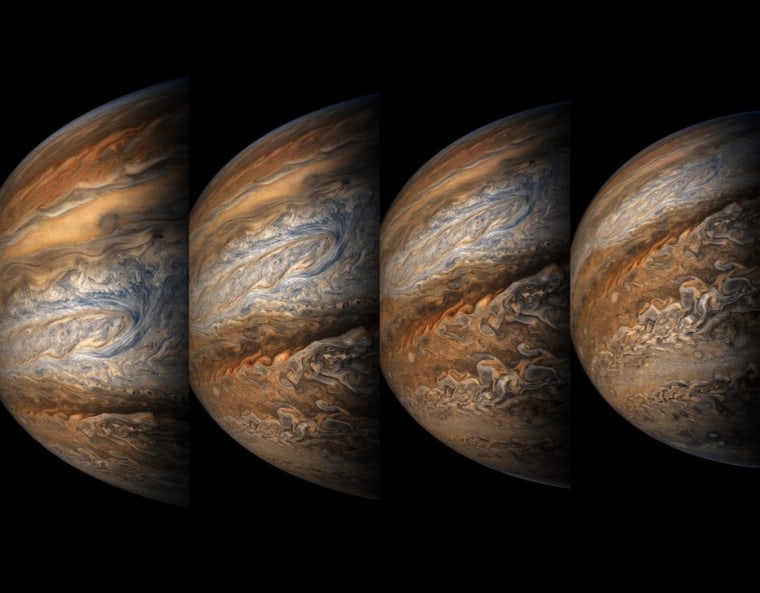New photos by NASA's Juno spacecraft capture the solar system's largest planet in all its complex glory.
The four photos — which Juno took over an 8-minute span on Sept. 1, during its most recent close flyby of Jupiter— show the gas giant's many cloud bands and countless swirling storms (but not the famous Great Red Spot).
"At the times the images were taken, the spacecraft ranged from 7,545 to 14,234 miles (12,143 to 22,908 kilometers) from the tops of the clouds of the planet at a latitude range of -28.5406 to -44.4912 degrees," NASA officials wrote in a description of the images. You can see more amazing photos of Jupiter by Juno here.
The new photos actually represent a collaboration between Juno and citizen scientists Gerald Eichstädt Sean Doran, who processed raw imagery collected by the probe's JunoCam instrument into these dramatic, color-enhanced views.
NASA encourages anyone to process Juno pictures in this manner. If you're interested, go to the JunoCam page here: https://www.missionjuno.swri.edu/junocam.
The $1.1 billion Juno mission launched in August 2011 and arrived in orbit around Jupiter on July 4, 2016. Since then, the spacecraft has been studying the giant planet's structure, composition, and magnetic and gravitational fields, gathering data that mission scientists say should shed light on Jupiter's formation and evolution.
Juno is in a highly elliptical orbit that brings it close to the planet once every 53.5 Earth days. The spacecraft collects most of its data during these close passes; it has now completed eight of them.
Juno is scheduled to keep studying Jupiter through July 2018, though the probe won't necessarily cease operations then; NASA could end up granting an extending mission.

